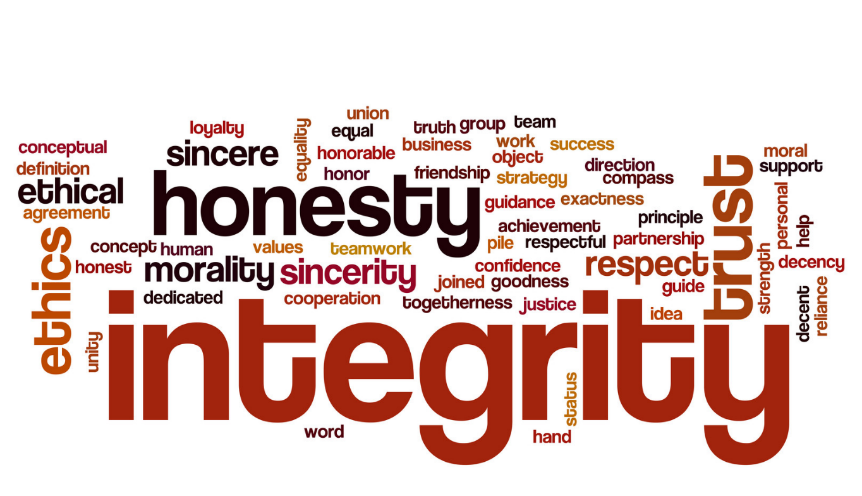Questions? 662-280-5444
Violation of Academic Integrity
Violations of academic integrity are among the most serious offenses that students can commit; any violation may result in consequences at both the course and institutional levels. Procedures, findings, and consequences for violations of academic integrity may depend on specific circumstances, such as the student’s grade level, educational background, prior violation of academic integrity attempts made to cite or acknowledge sources, and the amount and type of work at issue.
Statement on Academic Integrity



Leighton University is an academic community deeply engaged in inquiry and intellectual exchange and committed to core principles of academic freedom, academic integrity, and rigorous, creative thought. We recognize that intellectual and artistic exchange depend on a mutual respect for independent inquiry, reflection, and expression. Faculty, staff, and students alike are therefore dedicated to fostering an environment that upholds the highest standards of fairness, integrity, and respect in all their academic endeavors.
As contributors to an ongoing scholarly and creative conversation that depends upon thoughtful and fair acknowledgment and treatment of the inquiries, reflections, and expressions of others, each member of the Leighton community is expected to use and represent the work of others fairly and honestly; to acknowledge the work of others fully and accurately through proper attribution and citation; and to produce their own work unless collaboration is allowed. Faculty and staff members are expected to meet these standards in all their work as described in the employee and faculty handbooks; students are subject to the policies and procedures described below.
In educating students in the values, dispositions, and responsibilities of independent thinkers and scholars, the Leighton faculty recognizes that certain scholarly practices reflect complex tasks that require instruction and practice. Faculty are committed to teaching these critical practices. Students in turn are responsible for learning these scholarly practices and demonstrating them in all their work; they are not only a means of showing learning but of developing genuine understanding, not only the mark of an independent scholar but the way to become one.
This policy statement outlines these principles and practices, roles, and responsibilities. Potential consequences for students are described in Leighton University Academic Integrity Procedures.
Violations of Academic Integrity
Violations of principles and practices of academic integrity fall into two subcategories: (1) plagiarism and misuse of sources and (2) cheating.
Plagiarism and Misuse of Sources
Plagiarism is the use without proper attribution of someone else's words, ideas, or other work as if it were one's own. Failure to properly indicate and acknowledge others' work can lead a reader, listener, or viewer to think that information, research, ideas, words, images, data, artistic and creative elements, or other work are the student's efforts when they are not. Plagiarism significantly departs from accepted standards in the academic community and misleads others into thinking the work is the student's own.
Misuse of sources, like plagiarism, reflects a failure to credit others' work appropriately but involves errors, mistakes, incomplete or inadequate attempts, and other errors in the citation, quotation, and attribution that would not seriously mislead others into thinking the work is the student's own. Plagiarism and misuse of sources carry different consequences, as described in Leighton University Academic Integrity Procedures.
The responsibility to give credit for material that would not qualify as common knowledge applies to almost all types of assignments and situations, not just papers, and not only to finished work but also submitted drafts. Work in which students must acknowledge sources and the contributions of others includes but is not limited to draft and final versions of the following:
- Talks and other oral presentations
- Visual aids, presentation slides, or other media tools
- Websites, web pages, webcasts, and other multimedia work
- Artistic, musical, and other creative work
- Lab reports
- Problem sets
- Thesis chapters, papers, proposals, literature reviews, abstracts, annotated bibliographies, and other writing
- Exams, including in-class and take-home exams.
Cheating
Cheating involves violating recognized norms for academic inquiry or specific norms established by faculty for particular assignments or using other methods, including technology, to gain unearned academic advantage. Examples of cheating include but are not limited to the following:
- Unauthorized collaboration
- Using materials not permitted during an exam, when writing a paper, or in completing other assignments
- Receiving assistance beyond what is permitted
- Manufacturing or falsifying data
- Submitting the same work to satisfy the requirements of two different courses without getting permission from the instructor of the second course or permission from both instructors if the same work is submitted in two courses during a single semester
- Knowingly providing assistance of any kind to another person who is attempting to cheat or plagiarize.
